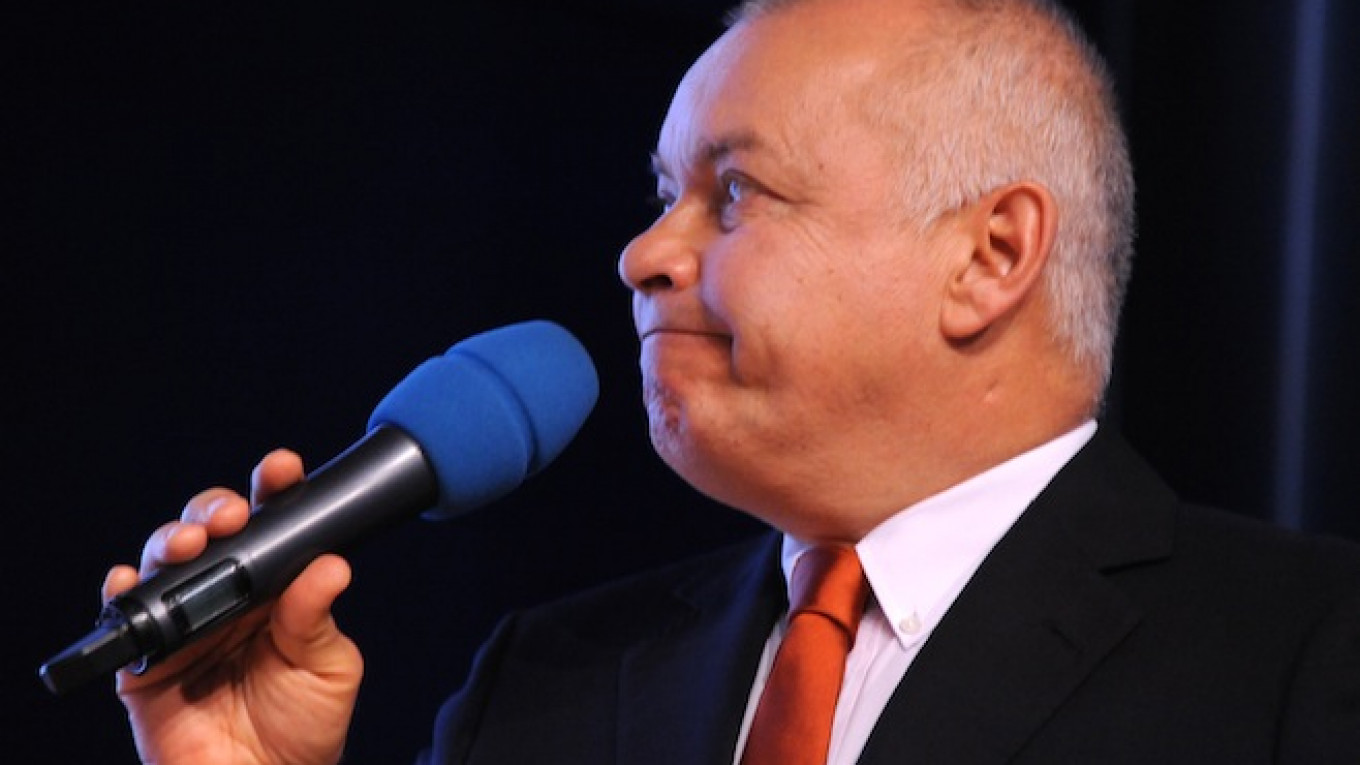Pro-Kremlin broadcaster RT and news agency Rossiya Segodnya will have to slash spending by 50 percent or more and likely give up on expansion plans as the steep devaluation of the Russian ruble hits their margins, news reports said.
“The ruble’s devaluation means that our budget is already cut almost in half,” RT’s editor-in-chief Margarita Simonyan was quoted as saying by the Vedomosti newspaper last week.
State-controlled RT, whose mission statement is to “acquaint an international audience with the Russian viewpoint,” will likely have to cease broadcasting in many countries and give up on plans to create French- and German-language channels, Simonyan said. About 80 percent of the network’s expenditures are in dollars and euros, she added.
Russian officials have said the same. “This year, financing for [overseas media] will be cut in half, if you consider the hard currency equivalent,” Yekaterina Larina, head of the Communications and Press Ministry’s department on state media policy, told news agency RIA Novosti earlier this month.
While RT had a budget of $445 million in 2014, based on an exchange rate of 30.5 rubles to the dollar, this year it will have only $236 million, RIA Novosti quoted Larina as saying. A dollar currently costs about 65 rubles following a sharp weakening of the Russian currency last year.
The budget of Rossiya Segodnya, a state news agency run by firebrand Kremlin supporter Dmitry Kiselyov that broadcasts in multiple languages, will fall even further — from $250 million in 2014 to about $100 million this year, Larina said, adding that spending plans are still in flux and likely to change “for the worse.”
Before the economic crisis, both RT and Rossiya Segodnya had been well-funded and on track for rapid expansion.
News agency RBC reported in September that the government planned to triple spending on Rossiya Segodnya and raise RT’s by 40 percent, a move widely viewed as proof of Russia’s growing desire to influence opinions abroad amid a slugging match with the West over Ukraine.
Steep falls in the price of oil have wreaked havoc with the Russian budget, about half of which comes from oil and gas revenues.
Finance Minister Anton Siluanov said earlier this month that all budget expenditures should be cut by 10 percent this year — with the significant exception of defense spending, which President Vladimir Putin has made clear is non-negotiable.
Financing for domestic state media is also coming under the axe. Venerable news agency TASS will have to fire a full quarter of its staff and cut remaining employees’ salaries by 25 percent, a spokesman told news web site Gazeta.ru this week.
Contact the author at d.damora@imedia.ru
A Message from The Moscow Times:
Dear readers,
We are facing unprecedented challenges. Russia's Prosecutor General's Office has designated The Moscow Times as an "undesirable" organization, criminalizing our work and putting our staff at risk of prosecution. This follows our earlier unjust labeling as a "foreign agent."
These actions are direct attempts to silence independent journalism in Russia. The authorities claim our work "discredits the decisions of the Russian leadership." We see things differently: we strive to provide accurate, unbiased reporting on Russia.
We, the journalists of The Moscow Times, refuse to be silenced. But to continue our work, we need your help.
Your support, no matter how small, makes a world of difference. If you can, please support us monthly starting from just $2. It's quick to set up, and every contribution makes a significant impact.
By supporting The Moscow Times, you're defending open, independent journalism in the face of repression. Thank you for standing with us.
Remind me later.






